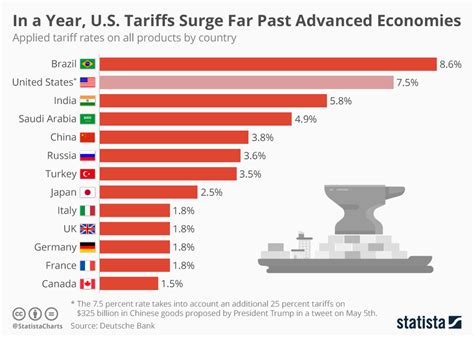
Upper-class retirees are funding their golden years with an average monthly income of $12,438, significantly exceeding the average American retiree income, according to recent data. This financial comfort stems from a diverse range of income sources, including Social Security, pensions, investment portfolios, and earnings from continued employment.
The stark contrast between the upper class and the average retiree highlights the growing wealth disparity in retirement and raises questions about financial planning strategies for achieving a comfortable and secure post-work life. While Social Security remains a crucial component of retirement income for most Americans, affluent retirees rely more heavily on investment income and other assets, allowing them to maintain a higher standard of living. Understanding the income streams and financial strategies of wealthy retirees can offer valuable insights for those planning for their own retirement.
A new study sheds light on how the wealthiest retirees manage to maintain a lavish lifestyle in retirement, revealing key strategies that set them apart from the average retiree. This financial advantage underscores the importance of proactive financial planning, diversified investment portfolios, and strategic asset management for securing a comfortable retirement. While replicating the exact financial circumstances of the upper class may be unattainable for many, adopting similar financial principles can help individuals maximize their retirement income and achieve their financial goals.
Key Income Sources for Wealthy Retirees
Wealthy retirees typically draw income from multiple sources, creating a diversified financial safety net that ensures a steady cash flow throughout their retirement years. These sources often include:
-
Social Security: While Social Security benefits provide a baseline level of income for most retirees, wealthy retirees often receive higher payments due to their higher lifetime earnings. According to the Social Security Administration, the maximum monthly Social Security benefit for individuals retiring in 2024 is $3,822. While this amount is substantial, it only constitutes a portion of the overall retirement income for affluent retirees.
-
Pensions: Traditional pension plans, though less common than in the past, remain a significant source of income for some wealthy retirees, particularly those who worked in the public sector or for large corporations that offered defined-benefit plans. These plans provide a guaranteed monthly income stream based on years of service and salary history.
-
Investment Portfolios: Investment portfolios, including stocks, bonds, mutual funds, and real estate, play a crucial role in generating income for wealthy retirees. A well-diversified portfolio can provide a steady stream of dividends, interest, and capital gains, which can be used to fund living expenses and maintain a comfortable lifestyle. “Investment income can significantly supplement other retirement income sources, providing flexibility and growth potential,” notes financial advisor Sarah Johnson.
-
Annuities: Annuities are insurance contracts that provide a guaranteed stream of income in exchange for a lump-sum payment or a series of payments. Wealthy retirees often use annuities to supplement their other income sources and provide a hedge against longevity risk – the risk of outliving their savings.
-
Earnings from Continued Employment: Many wealthy retirees choose to continue working part-time or in consulting roles, generating additional income and staying active in their fields. This continued employment not only provides financial benefits but also offers social and intellectual stimulation.
-
Rental Income: Investment properties can generate rental income, providing a steady stream of cash flow for wealthy retirees. Real estate investments can also appreciate in value over time, further enhancing their financial security.
-
Royalties: Some wealthy retirees may receive royalty income from intellectual property, such as books, music, or patents. Royalties can provide a passive income stream that supplements their other retirement income sources.
-
Business Income: Retirees who have owned and operated successful businesses may continue to receive income from their businesses, either through ongoing operations or through the sale of their businesses.
Contrasting Income Levels: Upper Class vs. Average Retiree
The financial disparity between upper-class retirees and the average retiree is substantial, reflecting the broader wealth inequality in American society. While the average American retiree relies heavily on Social Security and may struggle to make ends meet, wealthy retirees enjoy a higher standard of living, thanks to their diversified income streams and substantial assets.
According to the U.S. Census Bureau, the median household income for Americans aged 65 and over was approximately $47,775 in 2022. This figure pales in comparison to the average monthly income of $12,438 enjoyed by upper-class retirees, which translates to an annual income of nearly $150,000. This significant difference highlights the financial challenges faced by many retirees and underscores the importance of proactive financial planning and saving for retirement.
The Employee Benefit Research Institute (EBRI) found that many Americans are not adequately prepared for retirement, with a significant percentage facing the risk of running out of money during their retirement years. This lack of preparedness is often attributed to factors such as inadequate savings, high debt levels, and a lack of financial literacy.
Financial Strategies Employed by Wealthy Retirees
Wealthy retirees employ a range of financial strategies to maximize their retirement income and ensure their financial security. These strategies often include:
-
Proactive Financial Planning: Wealthy individuals typically start planning for retirement early in their careers, setting clear financial goals and developing a comprehensive retirement plan. They work with financial advisors to create personalized investment strategies and make informed decisions about saving, investing, and managing their assets.
-
Diversified Investment Portfolios: A well-diversified investment portfolio is essential for generating income and mitigating risk. Wealthy retirees typically allocate their assets across a range of asset classes, including stocks, bonds, real estate, and alternative investments. This diversification helps to protect their portfolios from market volatility and ensures a steady stream of income.
-
Strategic Asset Allocation: Asset allocation involves determining the appropriate mix of assets in a portfolio based on an individual’s risk tolerance, time horizon, and financial goals. Wealthy retirees often adopt a more aggressive asset allocation strategy during their working years to maximize growth potential and then gradually shift to a more conservative allocation as they approach retirement.
-
Tax Optimization Strategies: Wealthy retirees employ various tax optimization strategies to minimize their tax liabilities and maximize their after-tax income. These strategies may include contributing to tax-advantaged retirement accounts, such as 401(k)s and IRAs, and utilizing tax-efficient investment strategies.
-
Estate Planning: Estate planning is an essential component of financial planning for wealthy retirees. A well-designed estate plan can help to ensure that their assets are distributed according to their wishes and can minimize estate taxes.
-
Real Estate Investments: Many wealthy retirees invest in real estate, either as rental properties or as a primary residence. Real estate investments can provide a steady stream of income, appreciate in value over time, and offer tax advantages.
-
Professional Financial Advice: Wealthy retirees often rely on the expertise of financial advisors, tax advisors, and estate planning attorneys to help them manage their finances and make informed decisions. These professionals can provide valuable guidance and support, helping them to navigate the complexities of retirement planning.
The Role of Social Security in Retirement Income
Social Security remains a crucial component of retirement income for most Americans, but its role varies depending on an individual’s income level and retirement savings. While wealthy retirees may rely less on Social Security as a percentage of their overall income, it still provides a valuable safety net and can help to supplement their other income sources.
The Social Security Administration estimates that Social Security benefits replace about 40% of pre-retirement income for the average retiree. However, this replacement rate is lower for higher-income individuals and higher for lower-income individuals.
The future of Social Security is a topic of ongoing debate, with concerns about its long-term solvency. The Social Security Board of Trustees projects that the Social Security trust funds will be depleted in the coming years, which could lead to benefit cuts if Congress does not take action.
Implications for Retirement Planning
The financial strategies employed by wealthy retirees offer valuable insights for individuals planning for their own retirement. While replicating the exact financial circumstances of the upper class may be unattainable for many, adopting similar financial principles can help individuals maximize their retirement income and achieve their financial goals.
Key takeaways for retirement planning include:
-
Start Saving Early: The earlier you start saving for retirement, the more time your investments have to grow. Take advantage of employer-sponsored retirement plans, such as 401(k)s, and contribute enough to receive the full employer match.
-
Develop a Comprehensive Financial Plan: Work with a financial advisor to develop a comprehensive financial plan that takes into account your individual circumstances, financial goals, and risk tolerance.
-
Diversify Your Investments: Diversify your investments across a range of asset classes to mitigate risk and maximize potential returns.
-
Manage Your Debt: High debt levels can significantly impact your ability to save for retirement. Pay down high-interest debt as quickly as possible.
-
Consider Working Longer: Working longer can help you to increase your retirement savings, delay taking Social Security benefits, and stay active and engaged.
-
Plan for Healthcare Costs: Healthcare costs are a significant expense in retirement. Plan for these costs by saving in a health savings account (HSA) or purchasing long-term care insurance.
-
Seek Professional Advice: Don’t hesitate to seek professional financial advice. A financial advisor can help you to navigate the complexities of retirement planning and make informed decisions.
The Impact of Inflation on Retirement Income
Inflation can erode the purchasing power of retirement income, making it challenging for retirees to maintain their standard of living. It’s essential to factor inflation into your retirement planning and consider strategies to protect your income from its effects.
Social Security benefits are adjusted annually for inflation, which helps to preserve their purchasing power. However, other sources of retirement income, such as pensions and annuities, may not be fully indexed to inflation.
Investing in assets that tend to perform well during periods of inflation, such as real estate and commodities, can help to protect your retirement income from inflation.
The Importance of Financial Literacy
Financial literacy is essential for making informed decisions about saving, investing, and managing your finances. Improving your financial literacy can help you to avoid costly mistakes and maximize your retirement income.
There are many resources available to help you improve your financial literacy, including online courses, workshops, and books. Consider taking a financial literacy course or working with a financial advisor to improve your knowledge and skills.
Navigating Retirement in a Changing World
Retirement is evolving, and the traditional model of retiring at age 65 and living off of Social Security and a pension is no longer the norm for many Americans. People are living longer, working longer, and facing new financial challenges.
Adapting to these changes requires proactive planning, flexibility, and a willingness to learn new skills. Consider exploring new career opportunities, volunteering, or pursuing hobbies to stay active and engaged in retirement.
Conclusion: Securing Your Golden Years
While the financial realities of upper-class retirees may seem out of reach for many, their strategies offer valuable lessons for securing a comfortable and fulfilling retirement. By prioritizing proactive financial planning, diversified investments, and strategic asset management, individuals can increase their chances of achieving their retirement goals and enjoying their golden years to the fullest. The journey to a secure retirement requires dedication, discipline, and a willingness to adapt to changing circumstances, but the rewards of financial independence and peace of mind are well worth the effort. The key is to start early, stay informed, and seek professional guidance when needed. This multi-faceted approach to financial planning can significantly improve the likelihood of a comfortable and financially secure retirement, regardless of one’s current income level. Remember, it’s not about achieving the same income as the upper class, but about maximizing your own potential and creating a retirement that suits your individual needs and aspirations. Planning for longevity, healthcare costs, and potential economic downturns are also crucial components of a robust retirement strategy. Ultimately, a well-thought-out and consistently executed financial plan is the cornerstone of a successful retirement.
Frequently Asked Questions (FAQ)
1. What is the average monthly retirement income for upper-class retirees?
According to recent data, upper-class retirees have an average monthly retirement income of $12,438. This figure is significantly higher than the average retirement income for most Americans, reflecting the wealth disparity in retirement.
2. What are the primary sources of income for wealthy retirees?
Wealthy retirees typically draw income from a variety of sources, including Social Security, pensions, investment portfolios (stocks, bonds, mutual funds), annuities, earnings from continued employment, rental income from real estate, royalties, and business income. The diversification of income streams is a key factor in their financial security.
3. How does the retirement income of upper-class retirees compare to the average retiree?
The retirement income of upper-class retirees is substantially higher than that of the average retiree. While the average retiree may rely heavily on Social Security, upper-class retirees have diversified income streams and significant assets that allow them to maintain a higher standard of living. The median household income for Americans aged 65 and over was approximately $47,775 in 2022, whereas the upper-class retirees’ average monthly income translates to nearly $150,000 annually.
4. What financial strategies do wealthy retirees employ to maximize their retirement income?
Wealthy retirees employ various financial strategies, including proactive financial planning, diversified investment portfolios, strategic asset allocation, tax optimization strategies, estate planning, real estate investments, and reliance on professional financial advice. These strategies help them to generate income, mitigate risk, and minimize tax liabilities.
5. What steps can individuals take to improve their retirement planning and increase their chances of a comfortable retirement, even if they are not in the upper class?
Individuals can improve their retirement planning by starting to save early, developing a comprehensive financial plan, diversifying their investments, managing debt, considering working longer, planning for healthcare costs, and seeking professional financial advice. Even without the resources of the upper class, adopting sound financial principles and taking proactive steps can significantly increase the likelihood of a comfortable and financially secure retirement.



![[Restaurant Name] Returns! Iconic Chain Revives After 30-Year Absence](https://generasitekno.com/wp-content/uploads/2025/06/unnamed-file-924-150x150.jpg)





